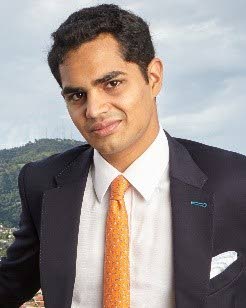We can fix our unfair welfare

kmmpub@gmail.com
The Prime Minister, the Government and the Police Commissioner have unanimously said it: our social welfare programmes have been hijacked by criminals. We are feeding a monster.
A government MP has been threatened. Millions have been given to gang leaders. Teenagers’ lives are worth about as much as a pot-hole repair contract.
URP and CEPEP are our two main unemployment programmes. Instead of being administered centrally, small-scale contracts are given out to people who hire workers; or provide part-time work. In theory, a good idea. In practice? Well, they’ve certainly encouraged a different kind of entrepreneurship.
Those who need help most are left behind. Unemployment programmes were meant to free people from the tentacles of circumstance. But they have held them there. In the last few weeks, I’ve listened to many people in tough situations. Instead of getting a foothold to climb the income ladder, they are trapped at the bottom.
Business is also frustrated. It is perennially short of workers. Productivity and growth are inhibited.
The real purpose of unemployment welfare is not to keep people at the bottom but to tide them over and help them find work. Despite well-meaning administrators, our system keeps people stuck in these programmes for years on end. This is at the cost of their own potential, not just taxpayer dollars.
What the real amount of time people spend in CEPEP and URP? Is it months – or years? We need to re-focus our programmes to help people find jobs.
Jobs in CEPEP and URP don’t pay much. But since they are part-time, many feel they have little incentive to leave and find a new full-time job. Administrators have a hard time weeding out people who cheat. In government, de-centralisation doesn’t always work.
Hundreds of years of brutal colonial exploitation and division have riven us apart and suppressed our inherent potential. What is that legacy? Insecurity. Although we have potential in spades, we lack confidence or hope that we can grow and succeed on our own. We don’t trust one another.
Dr Manfred Jantzen has compellingly described this as the Gold Pot society.
Other countries were forced into a growth mindset by necessity. Not us: we had oil and gas. We’ve been able to keep fighting for a slice of that once-hefty pie. Our welfare system, instead of a crutch for the needy has become a shackle on our potential.
The winds of necessity, however, are swift approaching. Government spending is shrinking. And the World Bank has measured that subsidies and transfers account for more than 41 per cent of government spending. We must ensure these dollars actually get to those in need: and support our growth.
Change is possible. Researchers Nicola Pavoni, Ofer Setty, and Giovanni Violante – writing in the National Bureau of Economic Research – have compared different welfare systems and come to a common-sense conclusion. Welfare systems should be designed to tide people over. But the relentless focus of government support should be on getting people back into work.
Instead of a “make-work” system that doesn’t work, we should move to a simpler programme.
Step one is introducing a State subsidy for unemployment insurance for people with low incomes. If they lose their jobs, that insurance can tide them over for a bit.
After a few months, the government should simply give people money, conditional on proof that they are actively searching for a job.
Throughout this process the government can provide support to match workers and skills with jobs, using complete skills-databases. We can boost people and help them find jobs, re-skill or set up businesses.
Simpler is usually better. The research shows that that is the case with welfare. It will save money and boost growth. A straightforward unemployment welfare system has worked well enough for growing economies worldwide.
The most dynamic countries go even further. Singapore has no unemployment welfare at all. It diverts that money, largely into health and education. As the Singaporean government has said: “Our strategy has been to encourage economic self-reliance by promoting social mobility. Instead of providing large unemployment benefits and price support schemes, we prefer job creation and market competition. The provision of subsidies has been selective and confined mainly to education, healthcare, and public housing.”
Automation and ever more ubiquitous artificial intelligence will only worsen the current situation. Soon they may even replace so many jobs that a universal basic income may become necessary. But we are not there yet.
The only path that will keep us safe is the simple one that boosts growth.
Kiran Mathur Mohammed is a social entrepreneur, economist and businessman. He is a former banker, and a graduate of the University of Edinburgh

Comments
"We can fix our unfair welfare"